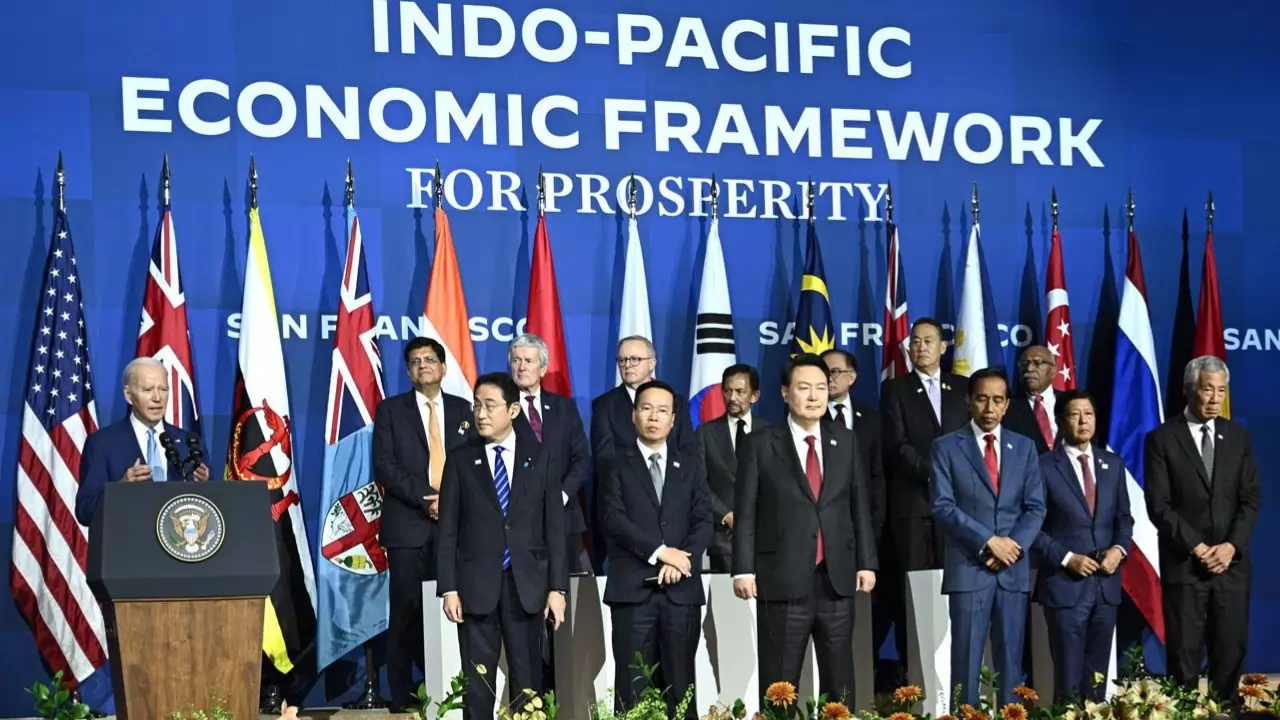
X
The Biden administration’s plan to rebuild American manufacturing and reduce reliance on Asia took a major leap forward last week when the U.S. and 13 Indo-Pacific partners signed a landmark supply chain agreement.
This framework will help countries including Australia, India, Indonesia, Japan, Singapore, and Thailand, to work more closely in dealing with supply chain disruptions which include the events of a pandemic. This will also help the countries secure critical industrial items and minerals.
US Department of Commerce Announces Upcoming Entry into Force of the IPEF Supply Chain Agreement
The 14 IPEF partners – the United States, Australia, Brunei Darussalam, Fiji, India, Indonesia, Japan, the Republic of Korea, Malaysia, New Zealand, the Philippines, Singapore,… pic.twitter.com/wuYLqwEtpd— ANI (@ANI) February 1, 2024
The pact commits the signatories to closer coordination, increased investment, and improved labor conditions across supply chains vital to U.S. consumers and security interests.
It represents a concrete stride in implementing the White House strategy to restore the production of crucial imported components, revive domestic industry, and expand the middle class.
Commerce Secretary Gina Raimondo hailed the accord reached under the Indo-Pacific Economic Framework (IPEF) currently spanning 14 Asia-Pacific economies.
"I am thrilled to see the continued commitment and enthusiasm of the IPEF partners to make concrete progress and deliver tangible outcomes in record time," Gina Raimondo said.
She said resilient, reliable supplier networks are essential for U.S. manufacturers to access the parts and materials that American factories need to thrive. Disruptions overseas reverberate quickly, idling plants and workers in local communities.
Raimondo called the IPEF supply chain agreement “the next step” in the administration’s sweeping efforts to bring back manufacturing jobs and production.
Those plans also feature massive infrastructure upgrades, clean energy incentives, regional tech hubs, factory modernization, and measures to develop cutting-edge products at home.
So far the initiatives have yielded over $600 billion in new U.S. manufacturing investments to drive competitiveness and employment for years.
The IPEF pact contains three main pillars to deepen regional ties around trade, lower investment barriers and uphold labor and environmental standards across partner countries.
Raimondo said the accord will allow earlier intervention to mitigate cross-border supply disruptions benefitting both companies and workers.





Copyright © 2025 Top Indian News
